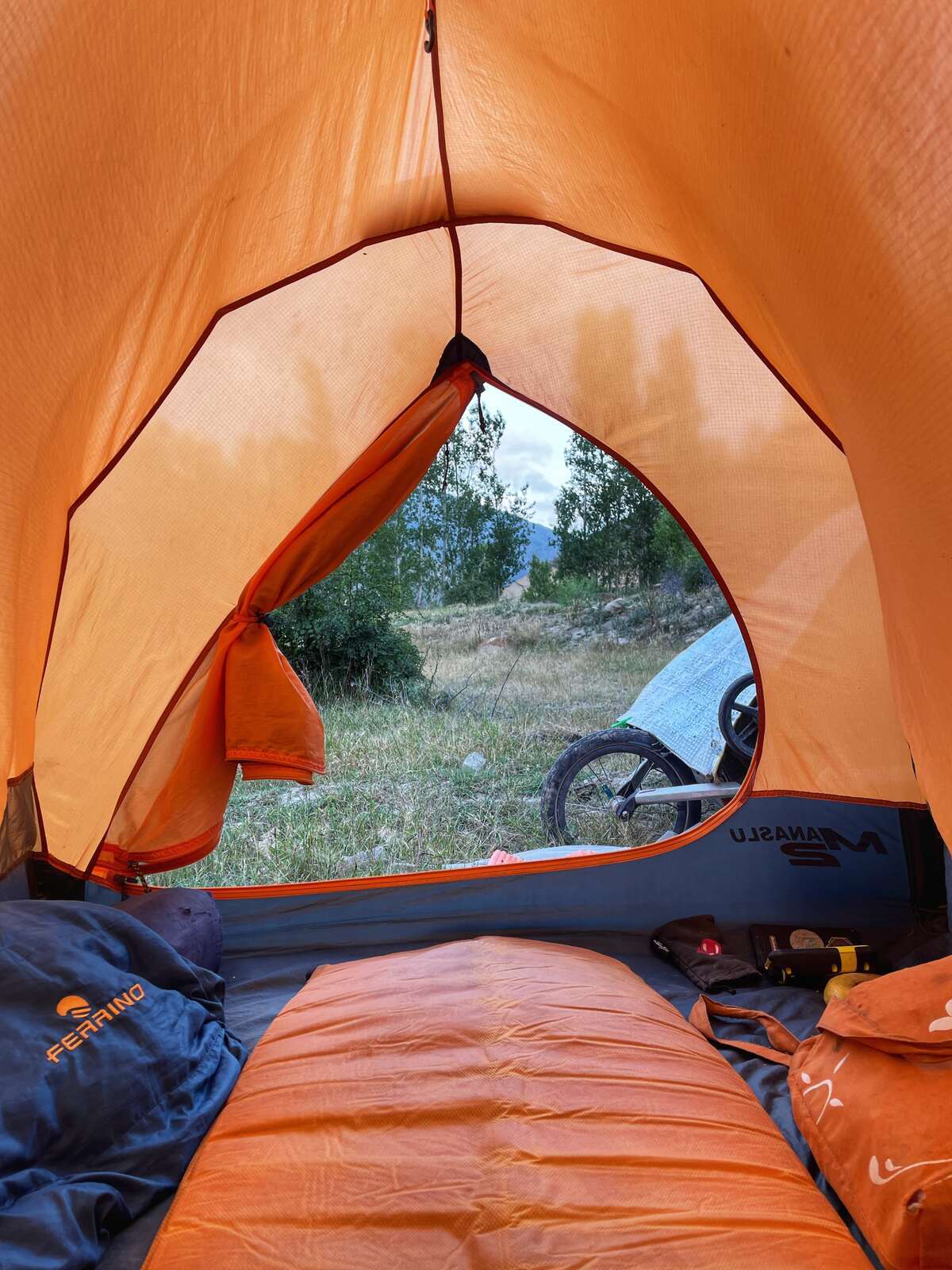AN APPROACH TO CHOOSE
Where to begin to describe the two months I spent in Iran? As I approached it across the desert of the Persian Gulf, I was assailed by a whirlwind of questions, some of them far from pleasant. They must be the same for every person, at least for every Westerner who sets out on a journey with the idea of debunking the myths of modern Persia.
They all started the same way: What if...? What if the police stop me? What if someone sees me camping, at night and alone, on the side of the road? What if war breaks out with Israel? Paranoia is fueled by disinformation, and the desert is a place of redundancy, where in the absence of other voices the ones in my head are amplified and bounce off like an echo from a mountain.
However, listening to the comments of the historical neighbors (Arabs and Iraqis), it seemed that crossing Iran on foot would be nothing more than a walk in the park. It seemed that it could be as banal as a final exam, an initiation rite that in the end is left behind and only the best moments are remembered, those that resurface every time one meets up with old companions. The anxieties, the clashes and the fears, once overcome, are invariably put into perspective by hindsight, which needs experience to be formed.
So I crossed the Iraqi border with a good dose of hope and headed towards Iran.
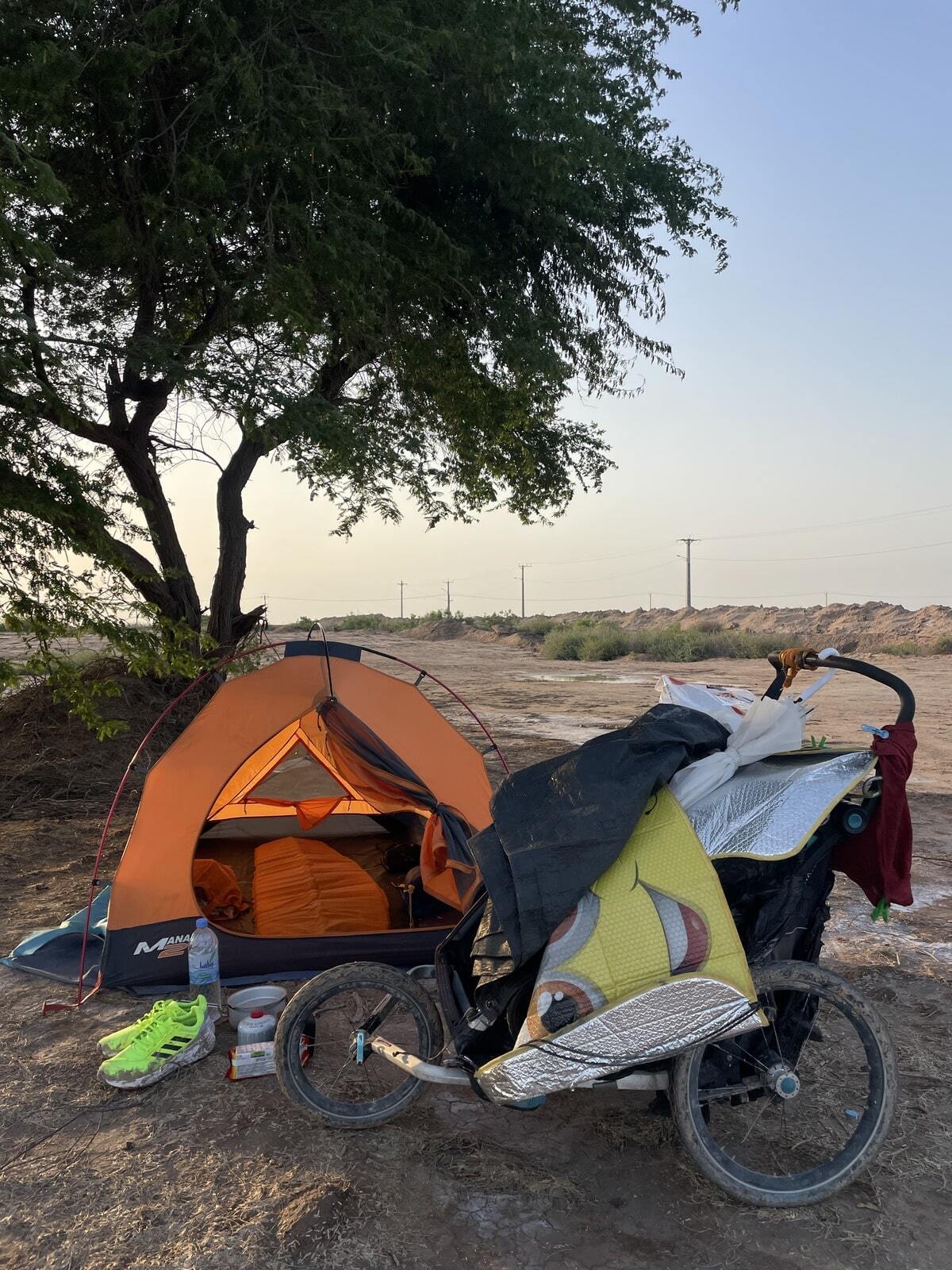
DISINTEGRATING YOURSELF
The first few days in a new country are about getting used to it. Local SIM, money, first words to learn. The Internet only works with a VPN, many apps are blocked. No payment cards, not even to withdraw money: here, all you have to do is cash, and the best exchange rate is on the black market. One euro is worth six hundred thousand rials, about twenty times the official rate. Inflation in Iran is skyrocketing, thanks to the economic crisis fueled by international sanctions. At the border, they check everything, alcohol is strictly forbidden, we are in a Muslim nation.
In Khorramshahr, a border town, I noticed that hosting foreigners was not common. In a few days, a feature of Iranian society emerged that makes daily life more flexible than one might expect: despite the strict rules, there is a certain elasticity in the controls. For example, Instagram is blocked, but every shop displays a sticker with its profile tag, right next to the opening hours.
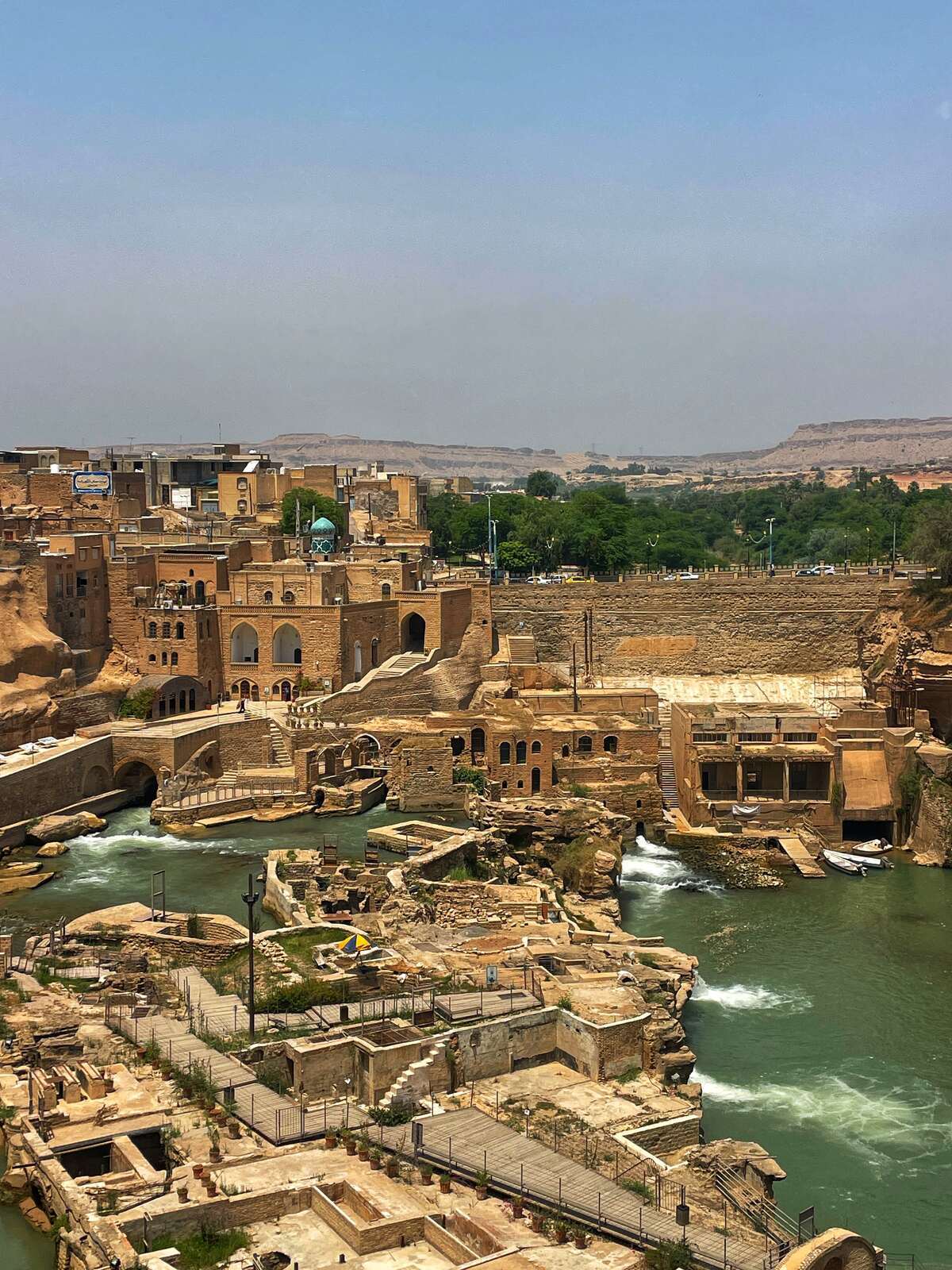
WELCOME TO IRAN
I began to discover the country step by step, with the usual slowness, and I was amazed by the wonders it held that seemed forgotten in history books. I was fascinated by Shushtar, a city with a two-thousand-year-old hydraulic system that still works, providing electricity to half the population. One of the bridges, which also serves as a dam, was built by Roman legionnaires taken prisoner in a battle against the Parthians. The system of locks and canals dug into the rock is impressive, with waterfalls in the area of the watermills. It was the first World Heritage Site I visited in Iran.
Despite the political isolation, this country is part of the UNESCO convention. I began to understand that the isolation was more a divorce with certain states than a refusal to open up to the world.
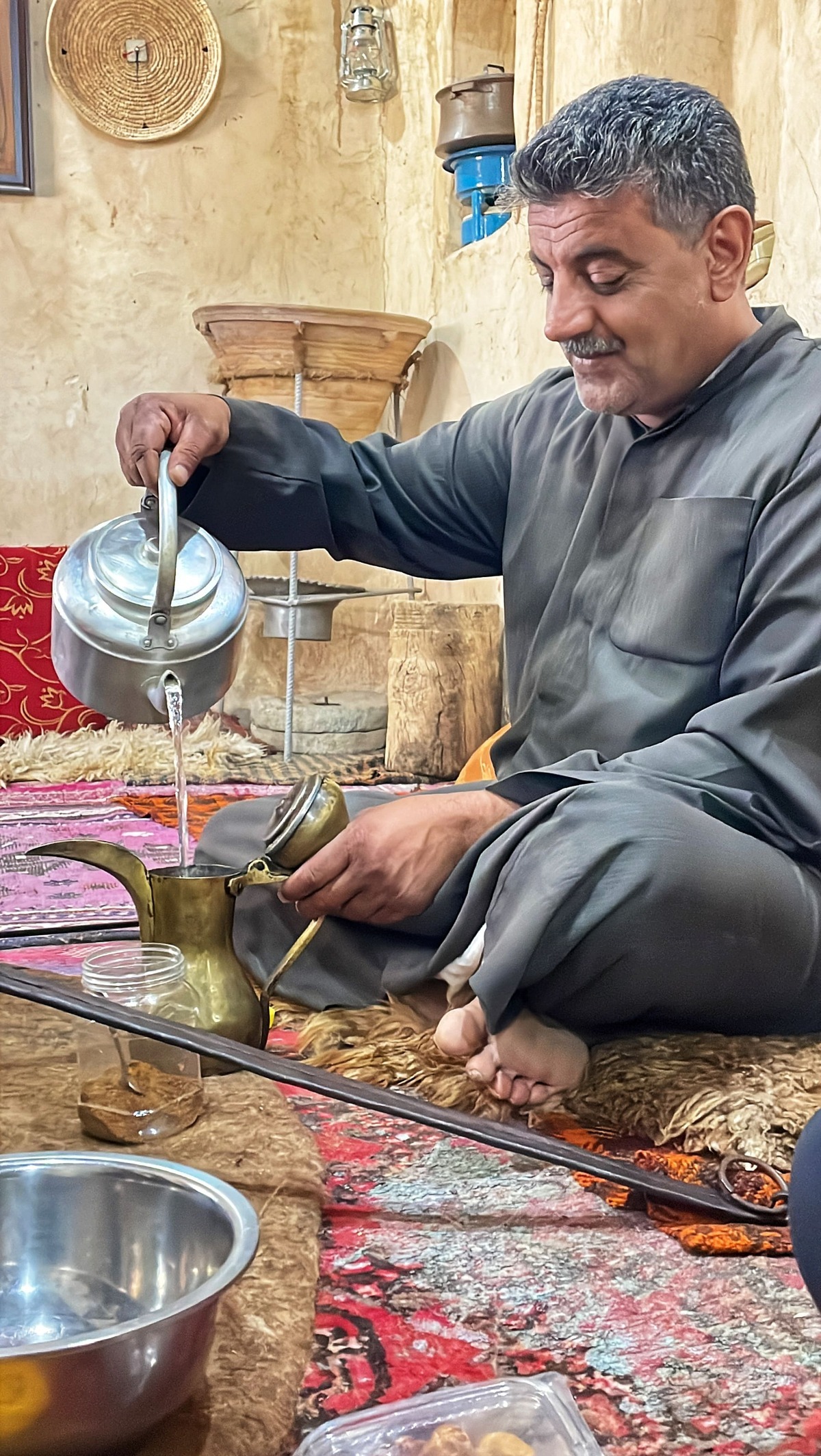
PERSIAN HOSPITALITY
The most surprising thing was the hospitality of the Iranian people. Whenever I met someone, they welcomed me with great kindness. People were curious to see a foreigner and it was enough to announce my arrival to be inundated with offers to meet. I was treated like an honored guest, like part of the family. The enthusiasm was contagious: first and second-degree relatives gathered to greet me, asking for photos and videos where I greeted a friend in Farsi. And then they thanked me, always with big smiles, as if it had been an honor to meet me.
One thing that struck me was the total trust that Iranians have in each other, especially when it comes to money. In Iran, there is a lot of haggling, but not in the way you might expect: instead of trying to raise the price, the seller often tries to give you the goods. This behavior, which has a specific name – *taroof* – is a form of courtesy rooted in the culture. And apparently the custom is to insist three times before the seller gives in and agrees to take your payment. Then you hand him your payment card and dictate the pin out loud, letting him type it in along with the amount. You read that right, the credit card pin is dictated out loud in a crowded shop. And nothing else happens. The honesty of Iranians is off the charts.
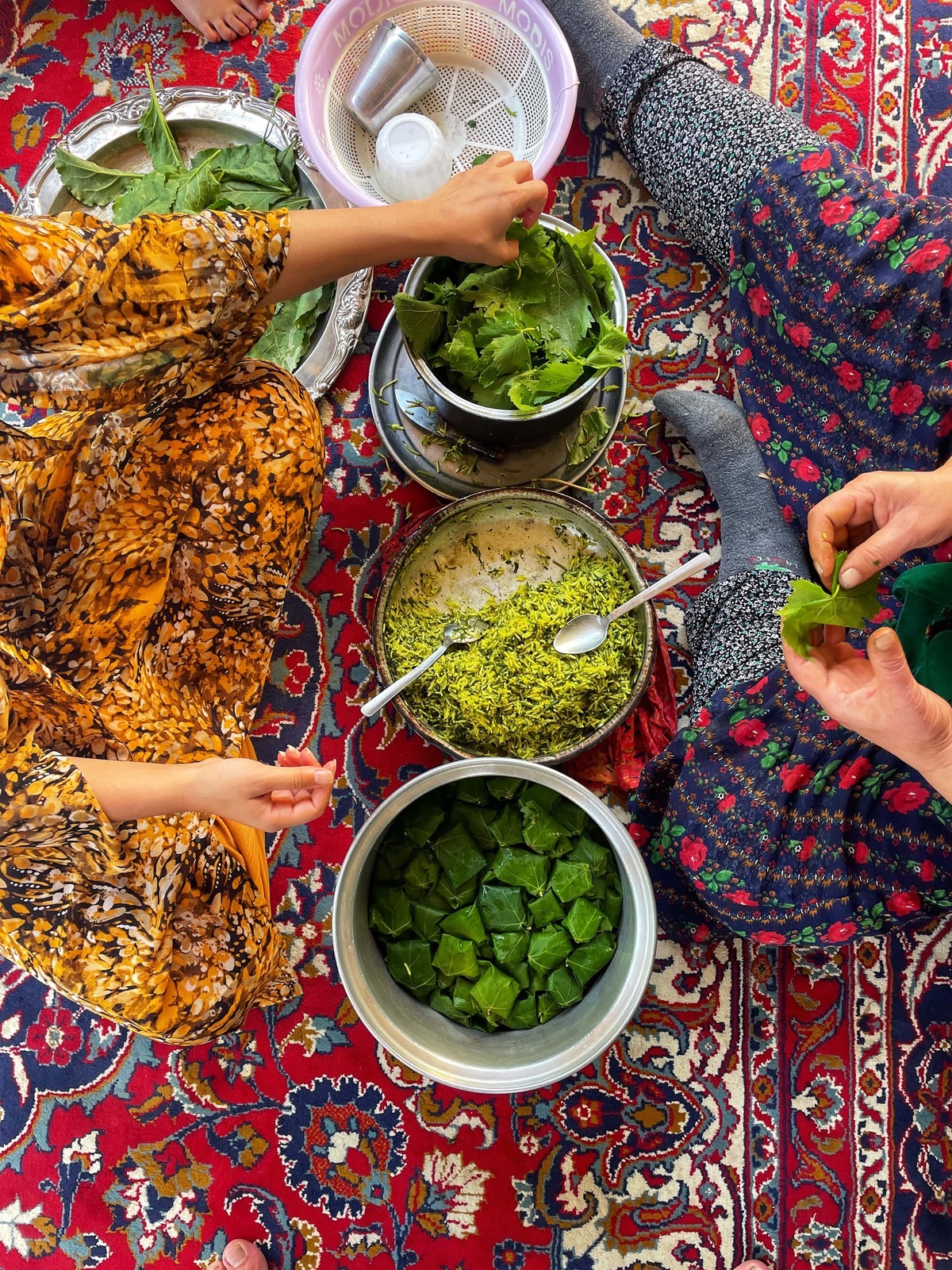
EPILOGUE - A THOUSAND AND ONE STORIES
At the end of the first month, I renewed my visa at an immigration center. It was quite a tumultuous story, as it took three attempts to get an extension. But as always, I ramble on too long. I arrived in Tabriz at the end of the second month, but decided to stay a few more days. Six months earlier, in India, I had met two Iranian girls and we had kept in touch. We walked along the tree-lined streets of the city, discovering the Blue Mosque and the old bazaar, the last World Heritage Site I visited in Iran.
Tabriz has always been a crucial hub on the Silk Road. From its original core of a caravanserai, it expanded to become a commercial center ante litteram, welcoming men and goods. Even in the hustle and bustle of negotiations, the voice of the muezzin could be clearly heard from the minarets.
Tabriz was a fitting end to an extraordinary journey, but the best moments were those spent in the company of my Iranian friends, with a steaming cup in my hands – this time, however, it was Turkish coffee! We promised to see each other again, but we knew it would be almost impossible: the Iranian passport is of little value, and visas are difficult to obtain. We settled for a hug and shared dreams.
With three days left and a hundred and fifty kilometers to the Armenian border, the journey through ancient Persia was over. In these months I encountered different peoples, from devout Arabs to nomadic shepherds, from Persians nostalgic for imperial grandeur to Kurds and Turks. Along the way, waterfalls, volcanoes, salt lakes and mountains became silent companions of the journey.
Now, next to Chile, Iran has also taken a place in my heart: a country of immense cultural and human riches, where a chai and a carpet are enough to create stories worthy of One Thousand and One Nights.
